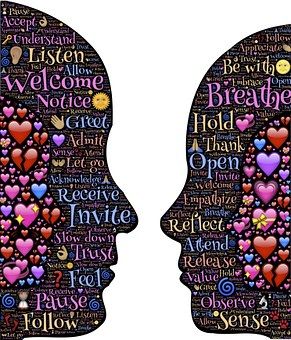Gratitude
Much More Than a Turkey
10 reasons why we’re designed for Thanksgiving
Posted November 14, 2016
Turkey, stuffing, pumpkin pie…Family and friends, relishing in laughter, football, and a day away from school and work…Thanksgivings traditions rate among the most favorite celebrations of the year.

In elementary school we learned that Thanksgiving had its roots way back, in 1621, when Pilgrims and Native North American’s celebrated a day to give “thanks” to their Creator for a good harvest, health, and their many Blessings in life. More than two hundred years later, in 1861, Abraham Lincoln proclaimed this growing tradition as a national holiday to be celebrated each November.
Today, however, the holiday and the tradition of thanking may feel abstract. As religious and spiritual practices for many have succumbed to greater attention of our own interests, our plenteousness, our bounty, conscientious parents struggle to teach good manners of thanking, and feel gratified if they are successful in socializing their children in polite discourse alone. The purpose of thanksgiving has dissolved.
In retrospect, however, there appears to have been a stroke of brilliance in lifting up the significance of gratitude as an essential experience worthy to earn its very own special day.
Researchers find that thanksgiving and thanking are far more significant than an annual holiday ritual or formal courtesy—thanking is inextricably related to our well-being that enhances our very designs, connecting us to the following outcomes of GIVING THANKS—"THANKSGIVING:"
-
 Source: pixabay by realhardword
Source: pixabay by realhardwordIMPROVES HEALTH—Studies confirm that those who are grateful experience less pain. Thankful individuals engage life and live healthier lifestyles.
-
ENHANCES EMOTIONAL WELL-BEING—Research confirms that the positive actions of thankful people diminish toxic states such as depression and anxiety.
-
BUILDS SELF-ESTEEM—Persons who routinely express appreciation are less likely feel resentment toward others, affirming others without feeling less significant.
-
STRENGTHENS RELATIONSHIPS—Beyond presenting the markings of good manners, thanking affirms others and disbands defenses, leading to more genuine exchanges.
-
BOOSTS RESILIENCE—Those who thank have been found to endure traumatic experience much more effectively.
-
ACTUALIZES LIKABILITY—Individuals who are appreciative and thankful attract positive interest from others, which also leads to greater career and work success.
-
PROMOTES SLEEP—Those who routinely reflect on their day and express gratitude through prayer or reflection report better and longer sleep patterns.
-
AWAKENS SOCIAL SENSITIVITY—Thankful people are more constructive and prosocial. They are less likely to retaliate against others, even when criticized.
-
INCREASES HAPPINESS—Specialists in positive psychology reveal that those who thank more often enjoy “happiness.”
-
DEEPENS SPIRITUAL CONNECTEDNESS—Those thanking a spiritual source report building a positive, constructive connection to a living force of abundant strength for life direction.

It is time to rediscover thanksgiving. Evidently, a thankful soul and lifestyle adds so much to both the individual and everyone else around.Thankfulness engages us more fully in living, as researchers report. Gratitude or thanksgiving when part of our daily life engages us in Critical Connections brings us into the loop of feeling fully alive.
So, this Thanksgiving—in fact, this very day, this next moment, initiate your innate power of thanking that you are designed to engage and access its impact. Thanksgiving is a “gift” that costs nothing yet yields extraordinary returns. More than anything, thanksgiving is something that you do, not something that you wait for.

Here are three activities that will immediately lead you to tap into this invaluable resource:
- Consider what you have. Think about the source of these “gifts.” Express gratitude.
- Thank someone who is a “regular” part of your life, and to whom you have not expressed appreciation, your sincere thanks for their support, help, presence.
- Take time to tap into the experience of thanking. Thanksgiving leads you on a positive road of perspective and endless opportunity.
Feel the power of Thanksgiving!
John T. Chirban, Ph.D., Th.D., is a part-time lecturer at Harvard Medical School and author of Collateral Damage: Guiding and Protecting Your Child Through the Minefield of Divorce (HarperCollins, 2017). For more information visit drchirban.com (link is facebook external) twitter.


